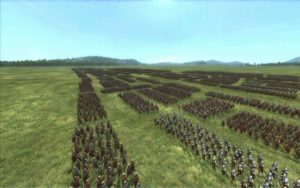
First, it can be done! This past Sunday I completed a six month series through the book of Numbers. The series totaled 31 sermons for 36 chapters. Phew! Great challenges and great rewards!
One thing I want to do better in these posts is highlight the kind of literature you’re dealing with. It’s my way of helping you see how meaning is made before we get to what that meaning is for the church.
So, for instance, in Numbers 9:15-23 is the spectacular story of God guiding His people with a “cloud…by day and…fire by night.” (v. 16) Meaning is made through the subjects (cloud and fire), their actions (“lifted from over the tent” in v. 17), and the response of God’s people (“camped….set out” in vv. 17-18). The cloud and pillar, of course, are also described as “At the command of the Lord…” (cf. vv. 18, 20, 23 and the key phrase, “the people of Israel kept the charge of the Lord” in v. 19).
It’s pretty clear that the Lord is instructing His people through the way He clearly leads them in their journey. And us? Well…
Our Lord will lead the way (vv. 15-16)
We will follow His leading (vv. 17-23)
Even without the cloud/fire?!? (biblical theology of God’s guidance and following Him in our journey.)
The third movement is where the fun is because everyone has asked at one time or another: “Wouldn’t it be great if God guided us now like that?” It’s comforting to know that He does.
I found it helpful to explain God’s guidance in Numbers and His guidance now like this: in Numbers the cloud and fire are like us going from A to B and we don’t know the way (if we don’t follow exactly, we’ll get lost); today we move from A to B and we know the way very well (we don’t have to follow someone and even know various ways to get to point B if we want to or have to).
Our arrival is just as sure because of God’s presence with us in the Person of Christ and His Spirit. And that should help you provide a Christological reading for your congregants. On the cross, Christ loses the presence of God so that He never leaves those who trust Him. Anyone whose heart has been warmed by the Gospel wants desperately to follow the Savior’s leading.
May our Lord receive glory in the church and in Christ Jesus (Ephesians 3:21) as you preach and teach the book of Numbers.
Randal










